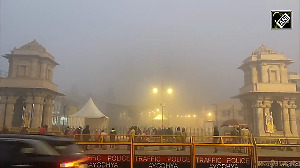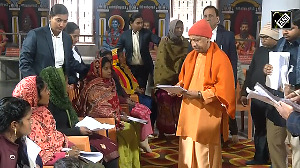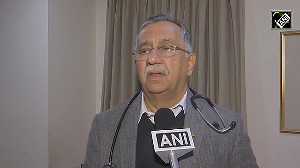The death toll in the suicide attack carried out by a 14-year-old boy at a popular sufi shrine in Pakistan's restive Balochistan province has gone up to 52. Over hundred people were also injured in the bombing.

The blast occurred in the remote Hub region in Lasbela district where devotees were attending a Sufi dance called "dhamaal" at Dargah Shah Noorani shrine.
The target of the attack was an area where believers would perform 'dhamaal'. The blast site is situated some 250km away from Karachi.
Balochistan Interior Minister Mir Sarfaraz Bugti confirmed the blast which happened when about 500 to 600 devotees were present at shrine.
The Express Tribune initially reported that at least 40 people had been killed in the blast. It cited police sources as saying that the blast was a suicide attack carried out by a 14-year-old boy.
Islamic State has claimed responsibility for the attack.
Rescue teams had reached the blast site and started shifting the deceased and injured to the hospital. However, rescuers were facing difficulty in accessing the site as the shrine is located in a remote area.
The death toll is feared to rise with women and children casualties in the deadly blast.
"The shrine is located some 250 kilometres from Karachi in the remote mountains of Uthal and our vehicles have been dispatched there to carry out rescue operations and shift the injured to the hospitals," said Hakeen Lassi, an official of the Edhi Trust Foundation.
Local tehsildar Iqbal said security arrangements at the shrine were not proper.
"It is sad that although thousands of devotees from Karachi and other parts of the country visit the shrine everyday but there are no medical emergencies or ambulances at the site," he said.
He said the devotees take part in the 'dhamaal' everyday after sunset and the blast took place close to where they were dancing inside the compound of the shrine.
President Mamnoon Hussain and Prime Minister Nawaz Sharif have strongly condemned the bomb blast. They directed the concerned authorities to speed up the rescue activities and provide best medical facilities to the injured.
This is not the first time that extremists have targeted a shrine in Balochistan. This is the third major incident of a bombing in the province since August.
In August, about 70 people were killed in a suicide bomb attack outside the civil hospital in the provincial capital Quetta. Last month, 64 police cadets and two army men were killed when three terrorists raided a police training centre in Quetta.
An emergency has been declared in hospitals of Khuzdar and Karachi. The only hospital in the district is Civil Hospital Khuzdar, which is not equipped to handle the scope of the emergency.
Pakistan President Hussain said, "the government would eliminate the evil of terrorism from the country."
Balochistan Chief Minister Sanaullah Zehri said that provincial government would do everything for the victims as he ordered commissioner of Qalat division to submit a report about the attack.
Army said that it has also sent more than a dozen ambulances to help remove the bodies of victims.
The provincial government has set up a special team at the Home Ministry to deal with the situation after the attack. Electricity services were also disrupted following the explosion, hampering rescue efforts further. Electric power to the shrine is supplied with generators, Dawn News reported.
Two platoons of the Frontier Corps had also reached the shrine with medical and rescue equipment.
"People who are critically injured in the blast will be transported to Karachi," said Bugti.
Syed Zulfiqar Shah, the deputy commissioner of Khuzdar, said rescue teams were facing problems as they were no mobile signal networks in the area.
The mineral and resources-rich Balochistan province has been hit by terrorism, sectarian violence, targeted killings and insurgency.
More than 1,400 incidents of targeting the minority Shia and Hazara community have been reported in the province during the past 15 years. The province shares borders with Afghanistan and Iran and is said to be the home to some terrorist outfits as well who fled the northern and tribal areas after the military operation started there two years back.
Photographs: Reuters






 © 2025 Rediff.com -
© 2025 Rediff.com -